Fringe Friday 2023: Week One
Week one of our reviews of The Brighton Fringe 2023.
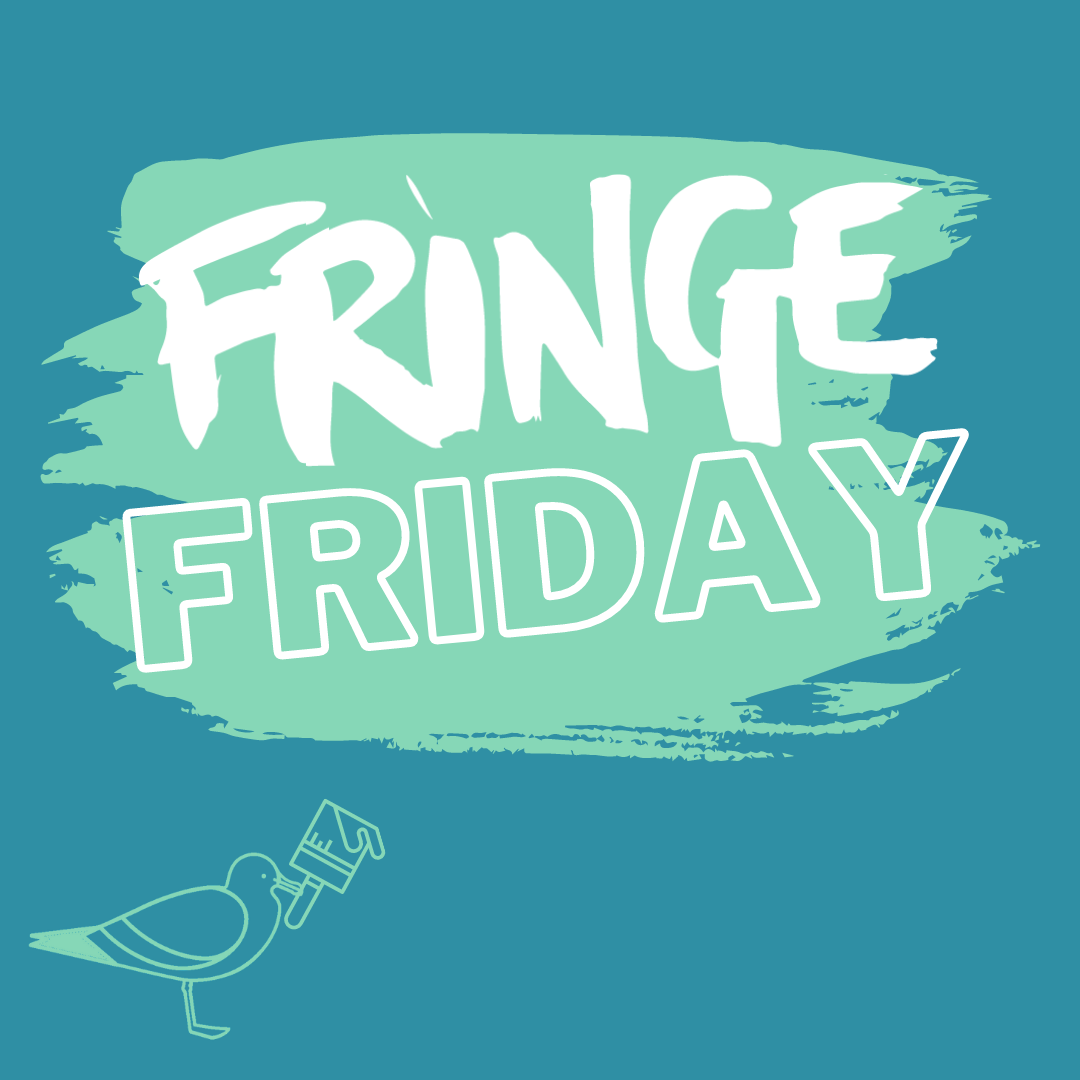
It's that time of the year again! Your favourite news publication has approximately 500 shows to go and review at The Brighton Fringe, and we're bringing you our thoughts in weekly installments. We're very excited, let's go!
Nathan Cassidy - Amnesia

Kicking off Brighton Fringe 2023 with Nathan Cassidy is the best way to start the season. A longtime favourite of ours, Cassidy won our Best Standup award last year (and if he wins it again this year, we'll have to make it the Nathan Cassidy Memorial award for Best Standup), and this year he's looking on track to win it again with another flawless performance.
The thing is, right, nobody wants links, depth, heart or soul in comedy anymore, so he's given us exactly what the TikTok generation want: short bits of unconnected comedy that you can just swipe away from. Or did he? With jokes about how animals are taking over (why can't humans shit with 'gay abandon' like horses can?), how 2048 is too far away to care about global warming, and how Pizza Express is trying to capture the teen market, Cassidy truly brought his A-game this year.
Some comedians treat Brighton Fringe as a warm-up for Edinburgh, but Cassidy always brings a truly polished show every time we see him. Life is about beautiful connections, and Brighton Fringe is about Nathan Cassidy, an incredible comedian making the best shows you could hope to see.
Carly-May Kavanagh
Married At First Fight
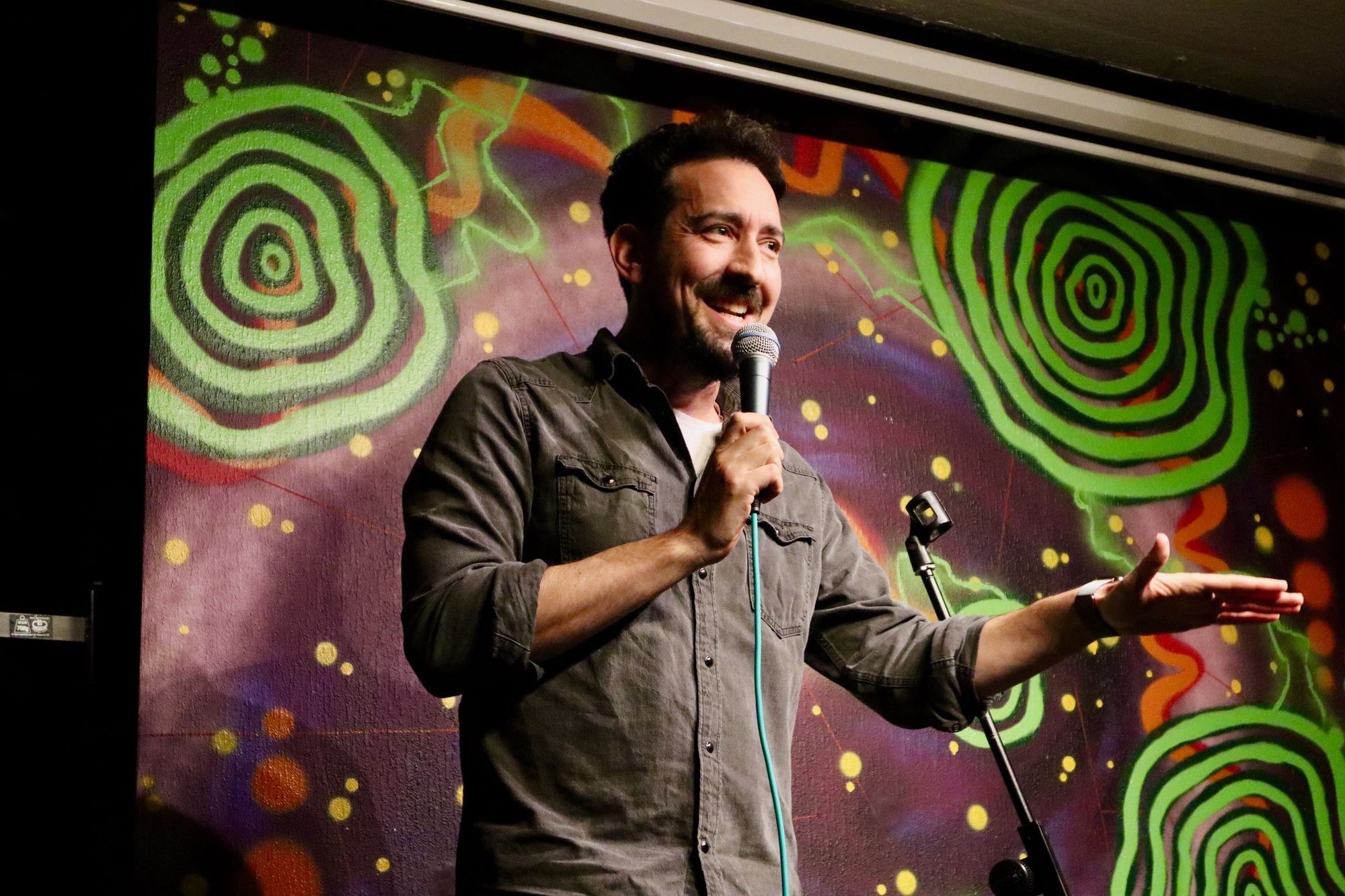
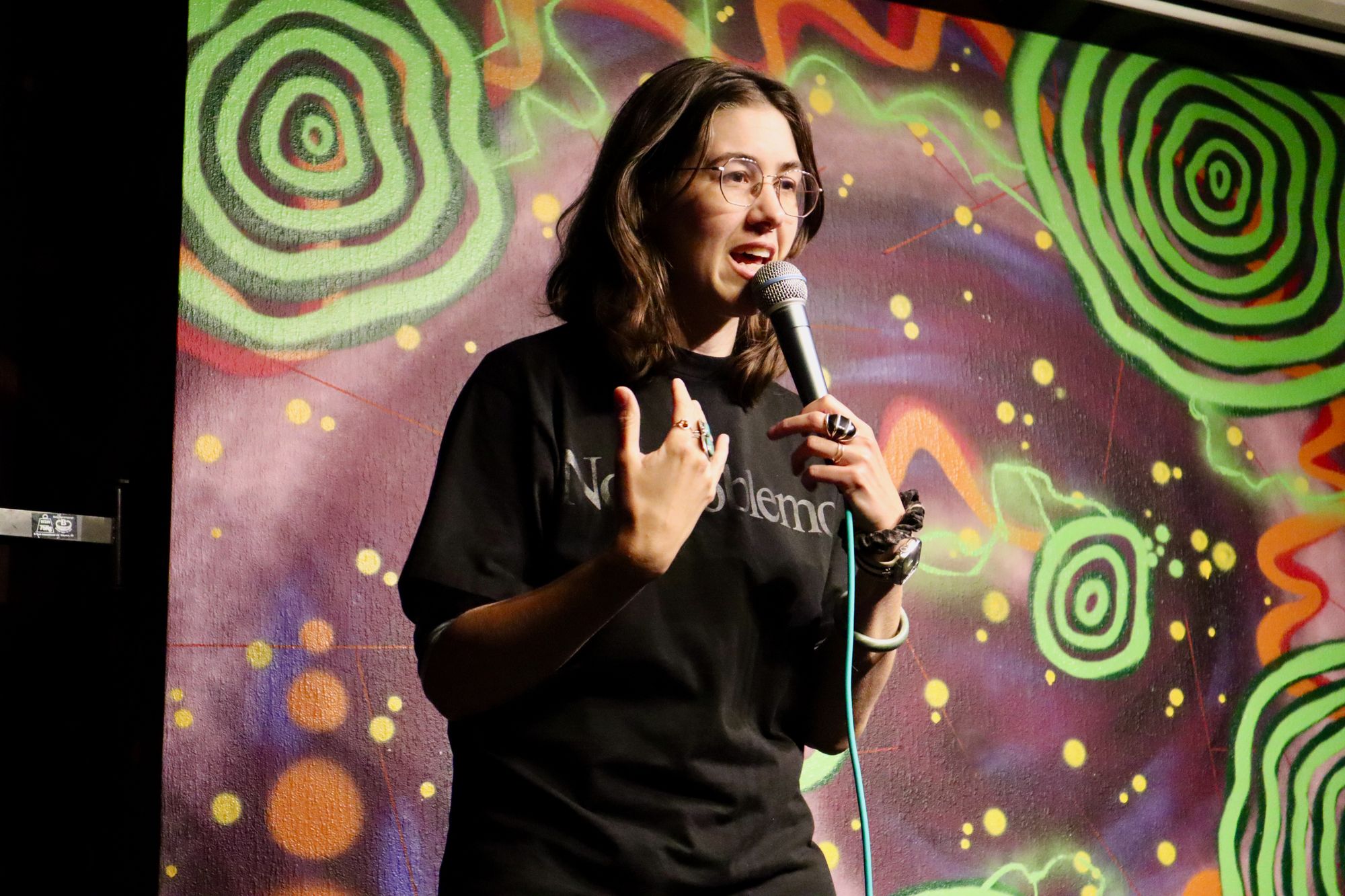
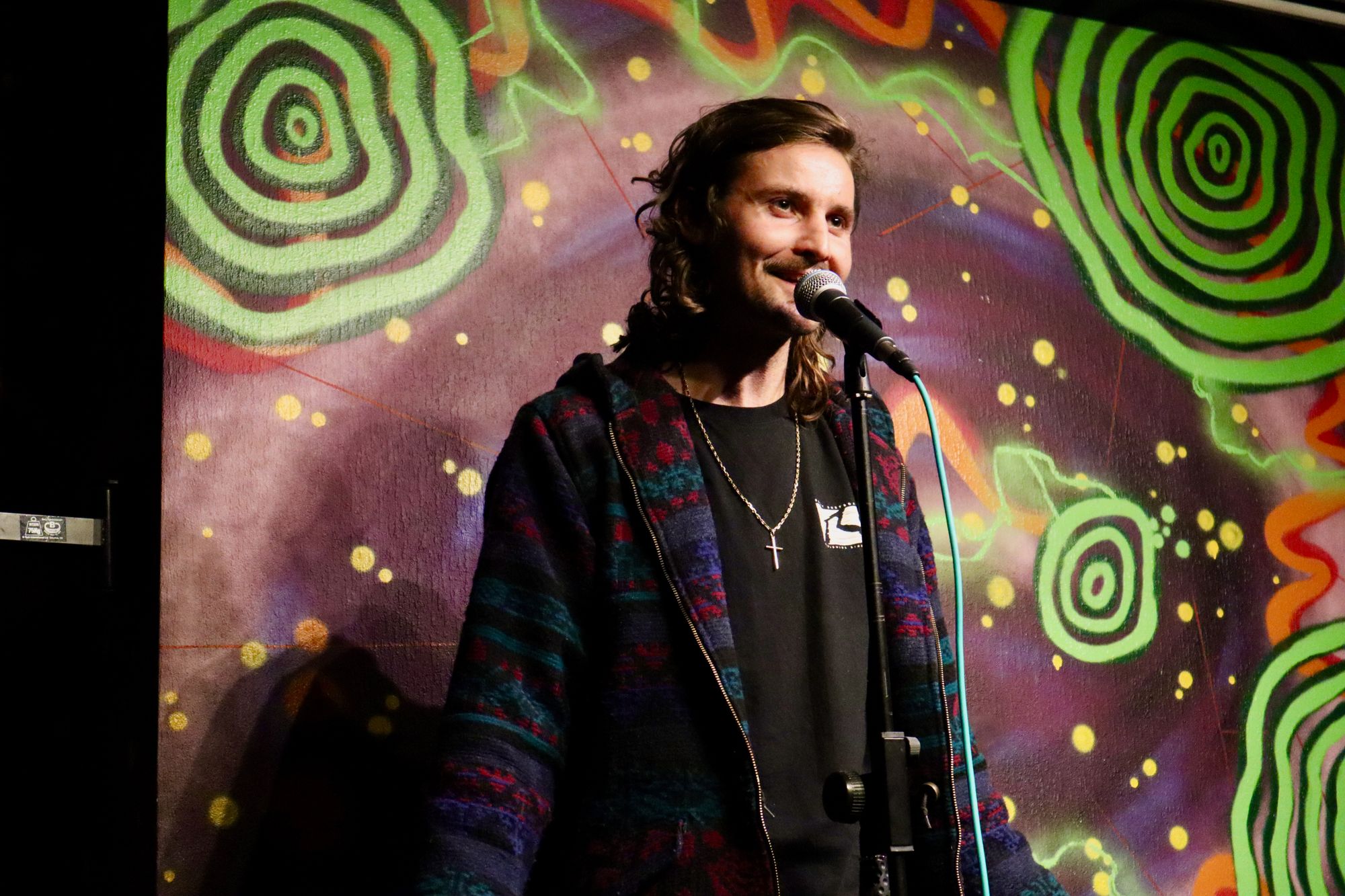
"Who's the funny one": a subject of perennial debate for couples which US comic Katharyn Henson and Irish comic Mark O'Keeffe have decided to spin into a show. Structurally slightly odd, with the two coming up together, doing some material, then handing over to a warm-up act (though I'm not complaining—the Barcelona-based James Regal was great and I'll be seeking out his show Fake Jews with Luke Meginsky) before coming up to do their individual bits so the audience could vote on who was funniest.
Henson leant into the confessional mode with a lot of difficult-childhood material, while O'Keeffe was like having a conversation with a slightly-drunk but very amusing stranger in a pub. They were both very funny (O'Keeffe won on the evening we went, putting them on two each for the run so far), and the show enjoyable—with the amount of crowdwork involved I suspect it would be a different experience every time—but while the gimmick probably helped get people in through the doors, I think it didn't serve the performers as well as it could've—I'd definitely be interested in seeing what they could do given a bit more time to let their material develop and breathe.
Adam Englebright
My First Time was in a Car Park
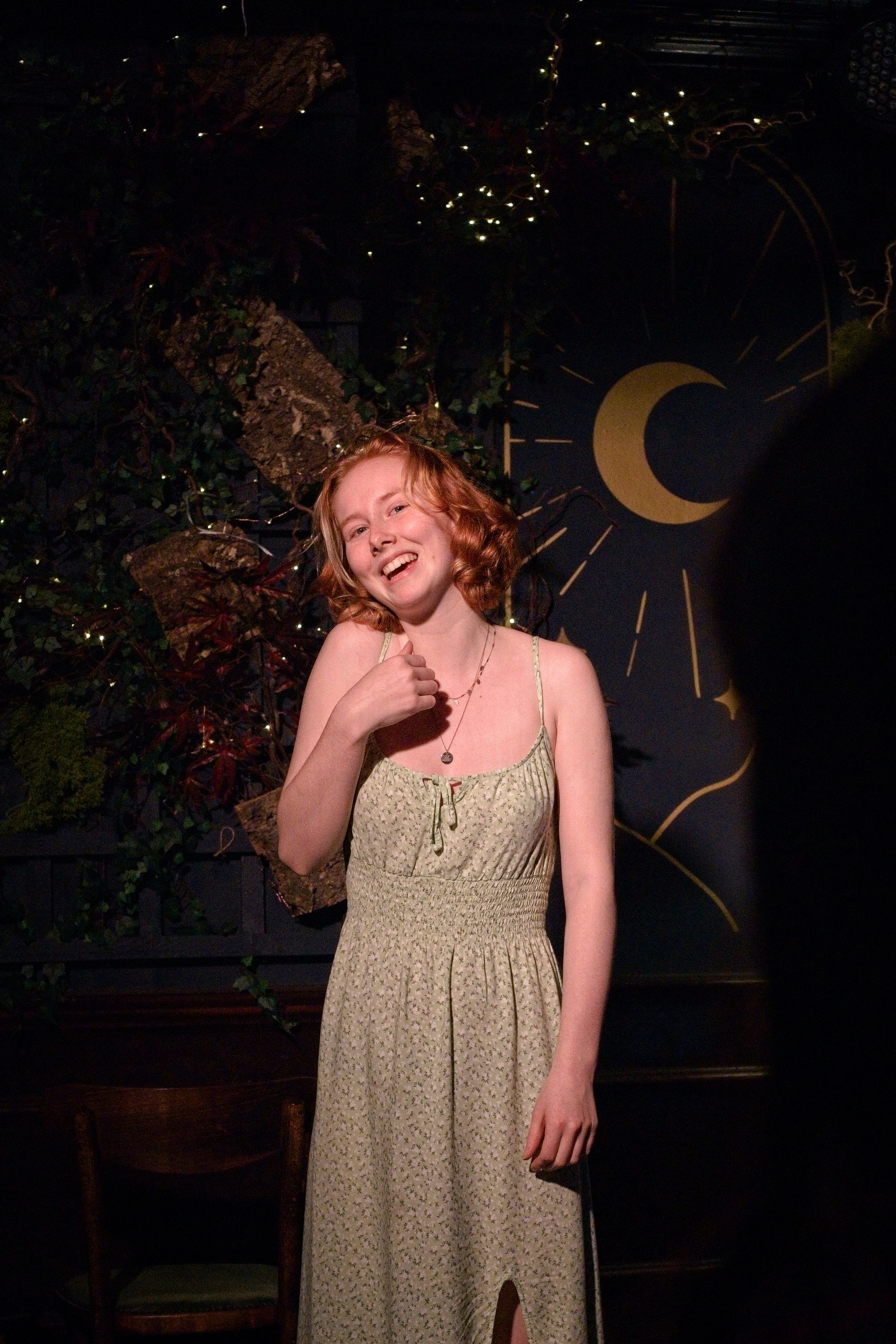
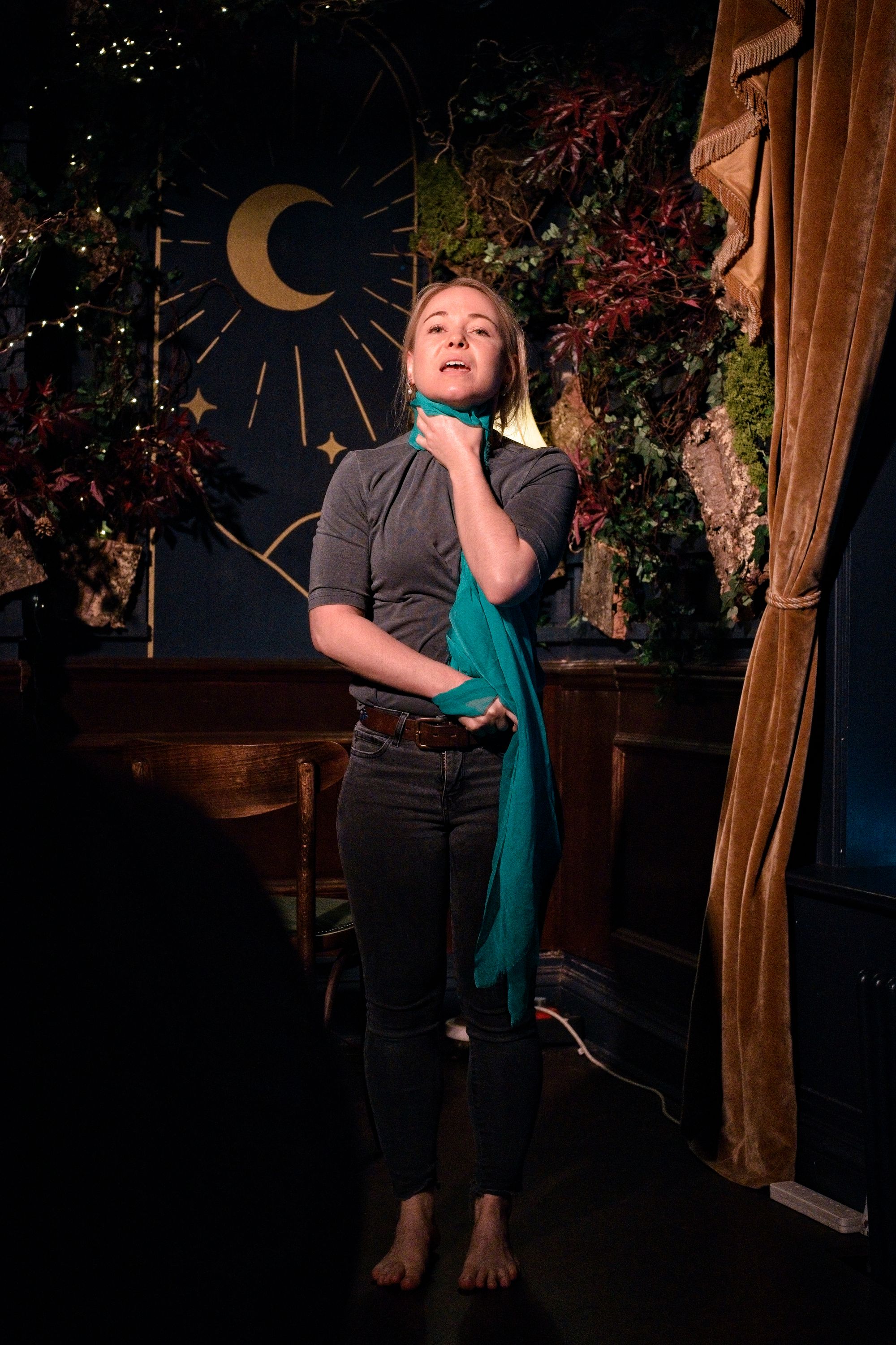
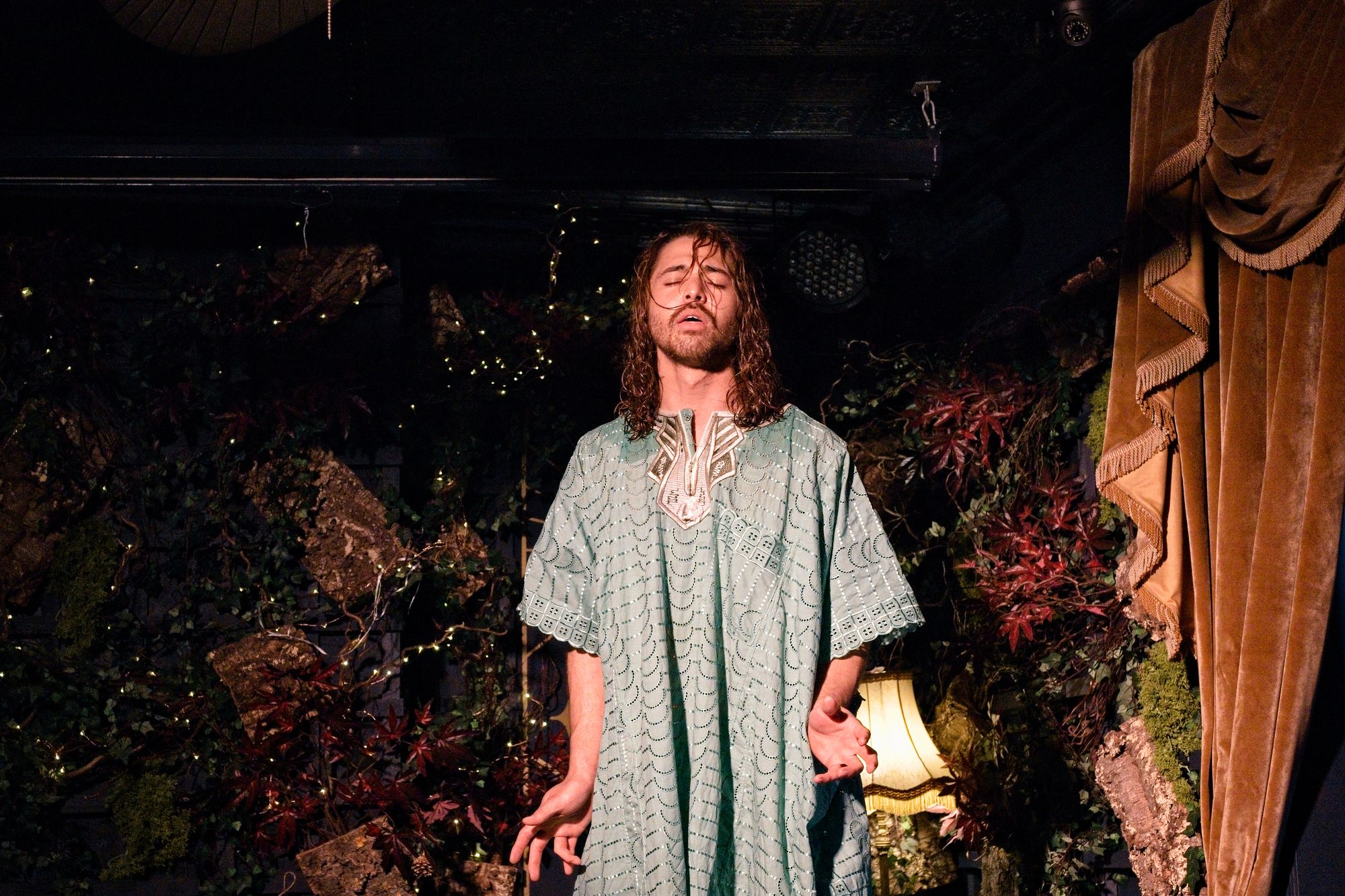
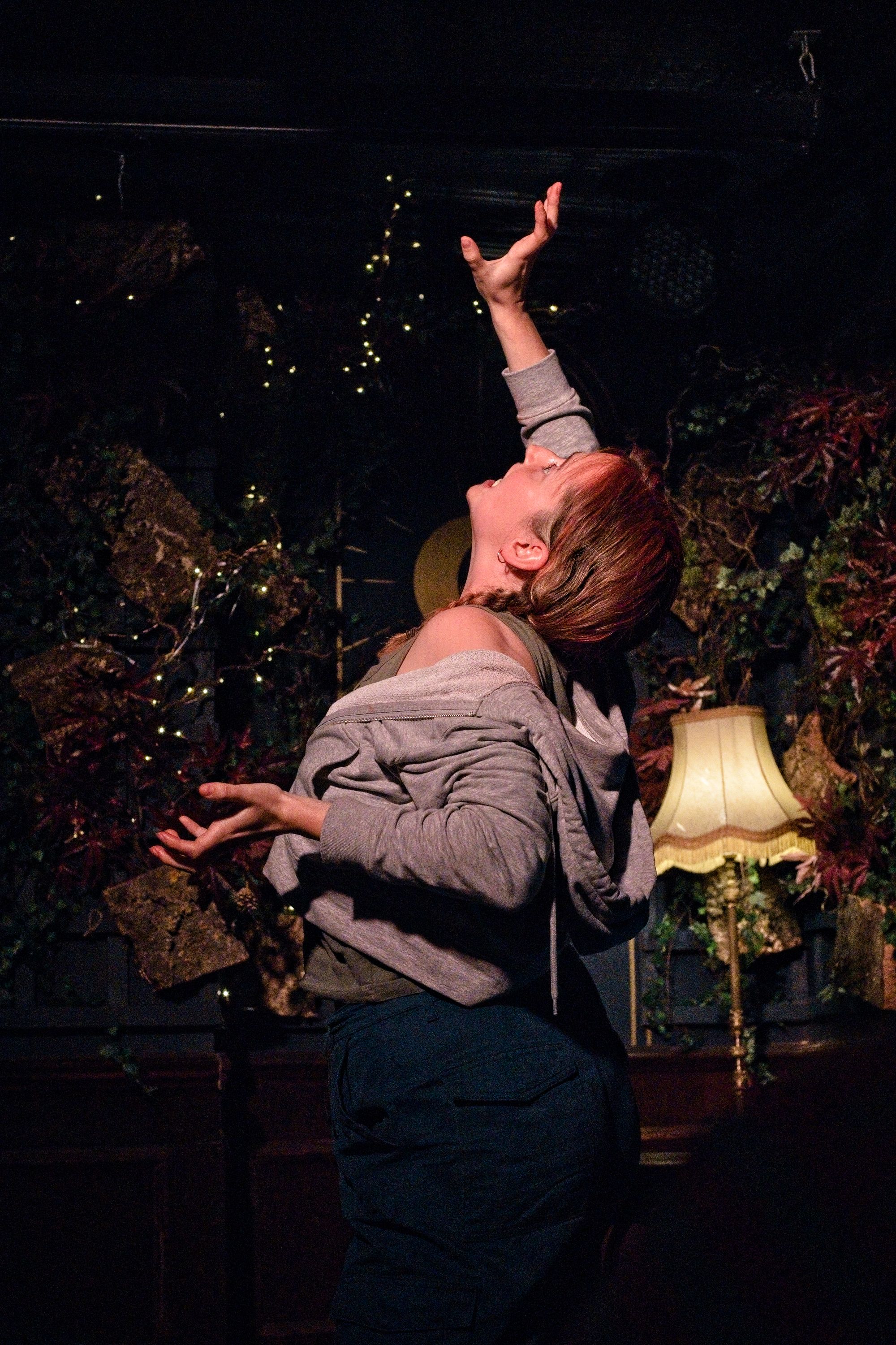
My First Time Was In A Car Park is a profound play which explores the complex, subtle, and unexpected ways that rape continues to shape the life of a young person long after the act itself has passed.
Not only does writer/director Phoebe Wood display a deep understanding and respect for her subject matter, she manages to weave in a remarkable amount of humour, as the title suggests. The show is at times genuinely laugh-out-loud funny. These lighter moments contrast sharply with the more shocking revelations of the piece.
The story is told by a young woman protagonist, Mira, played by the highly engaging Molly-Rose Treves. It is the interplay between Wood’s dialogue and Treves’ stand-out acting and delivery that make this play so exceptional.
Treves convincingly captures the confusion and dormant anger of a teenager who seems to believe she should be able to continue living a ‘normal’ life, despite her internal world being shattered by trauma. Mira feels guilt, envy, betrayal, and joy in the most surprising of places, but which seem completely logical in context.
One of her strategies for processing what has happened to her is to enter into fantasy, including encounters with terrifying whales, opinionated tomatoes, and a fun-loving, if maddeningly nonsensical, God.
The play is preceded by three shorter monologues which all lean towards magic realism, though the intended relationship between them is the ocean. Despite these running themes, the four monologues don’t flow naturally as a collective. Regardless, each has its own merits, and the title-piece alone makes this show an essential Fringe booking.
Ross Othen-Reeves
Gay Men's Chorus
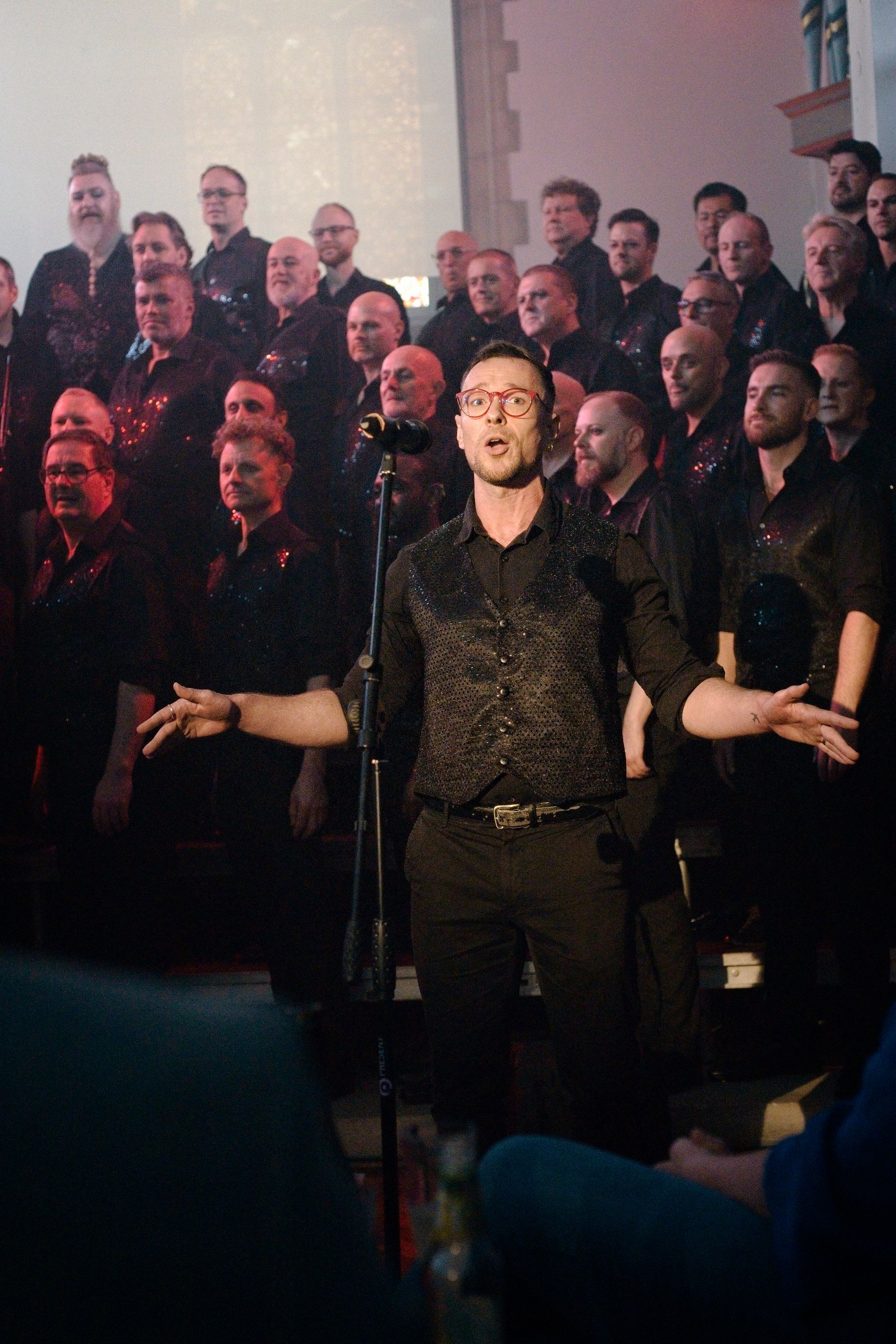

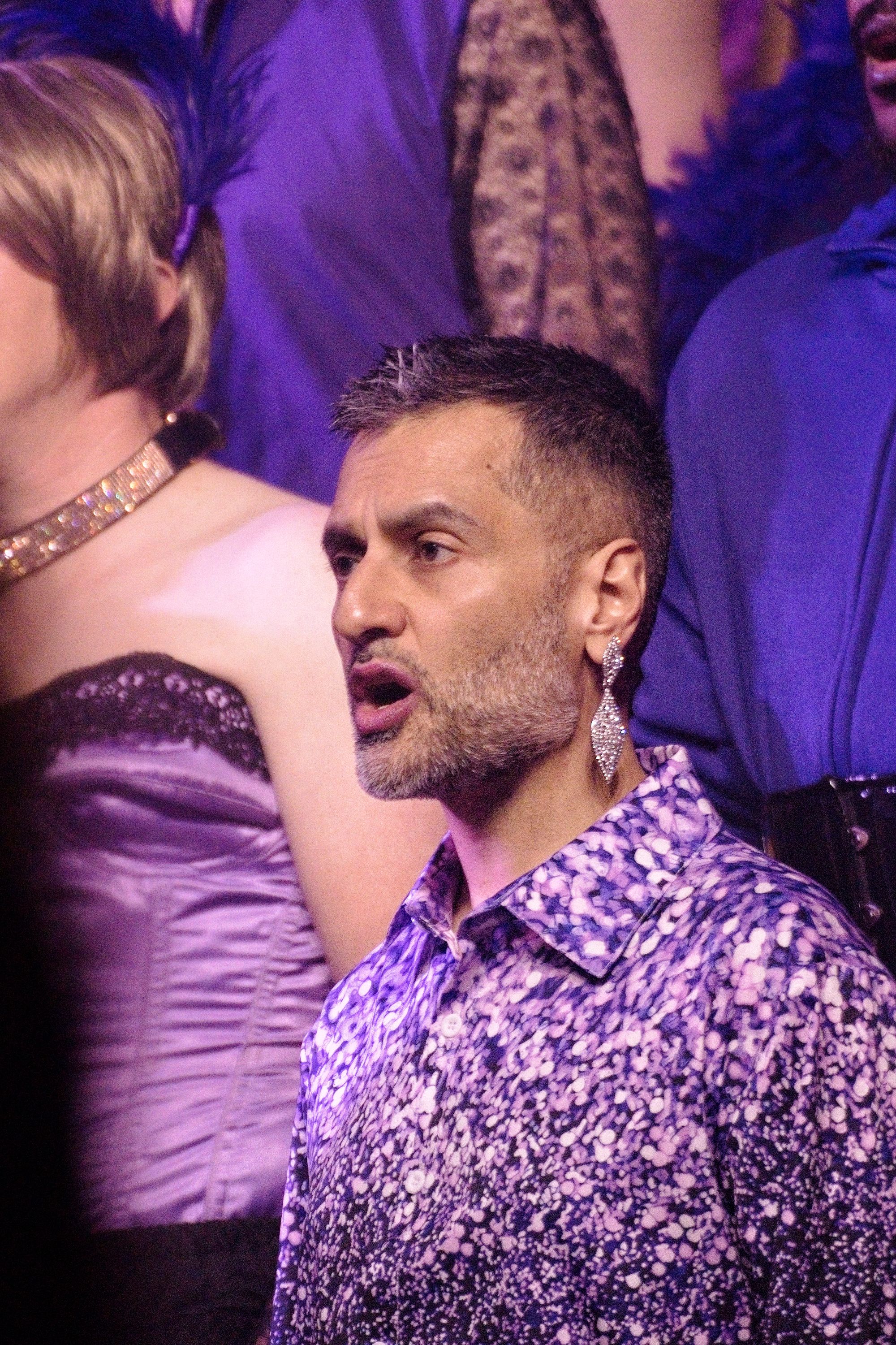
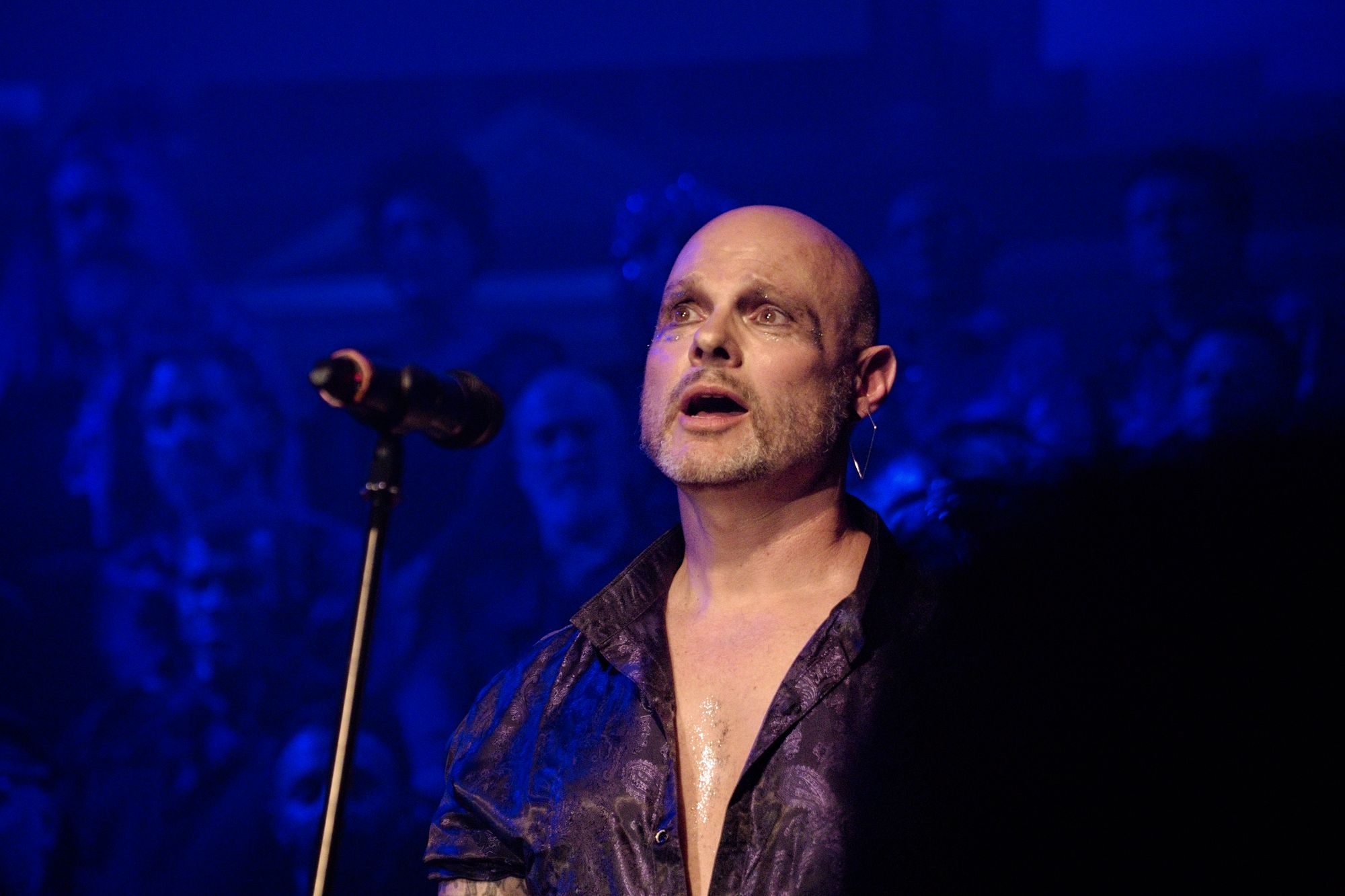
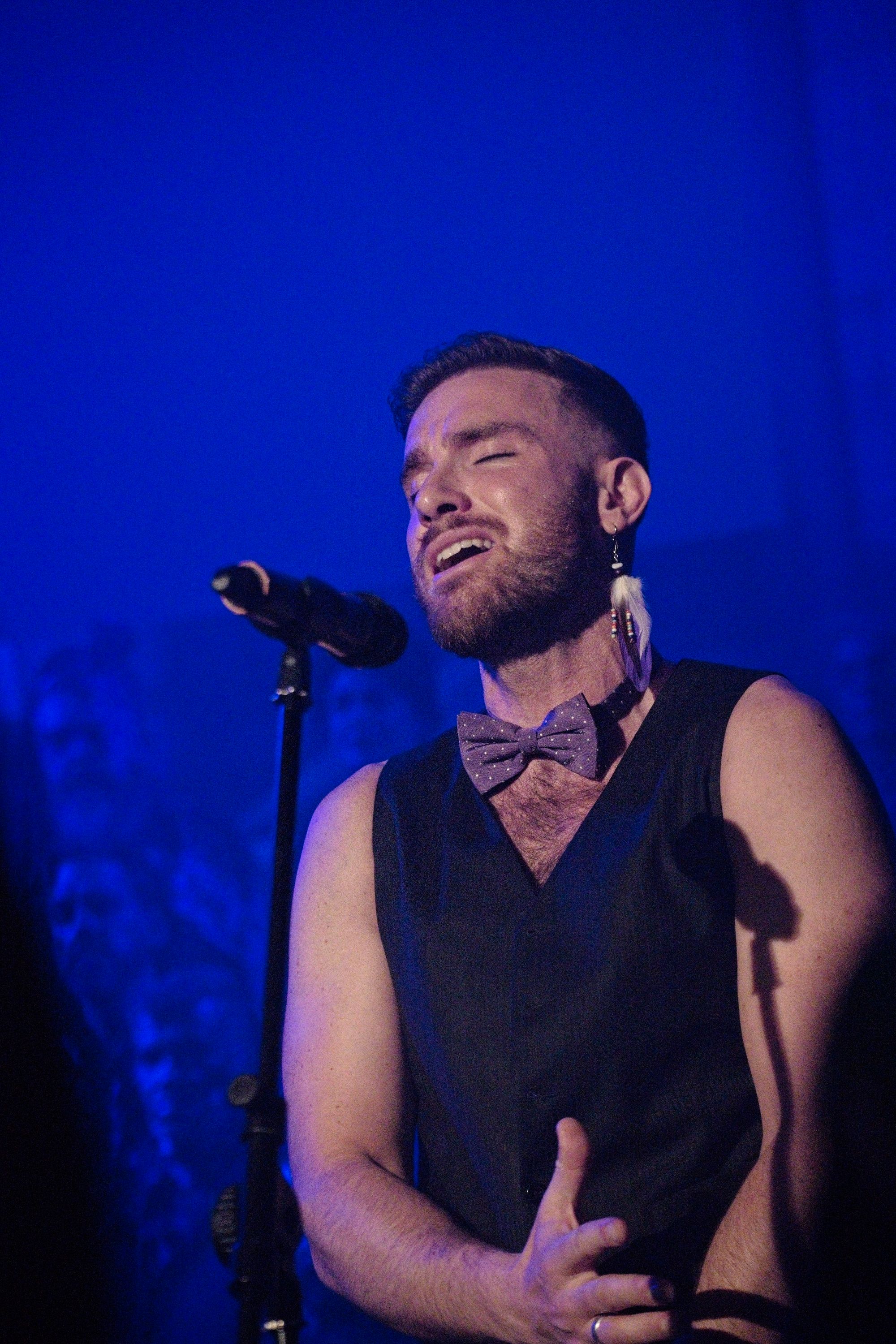
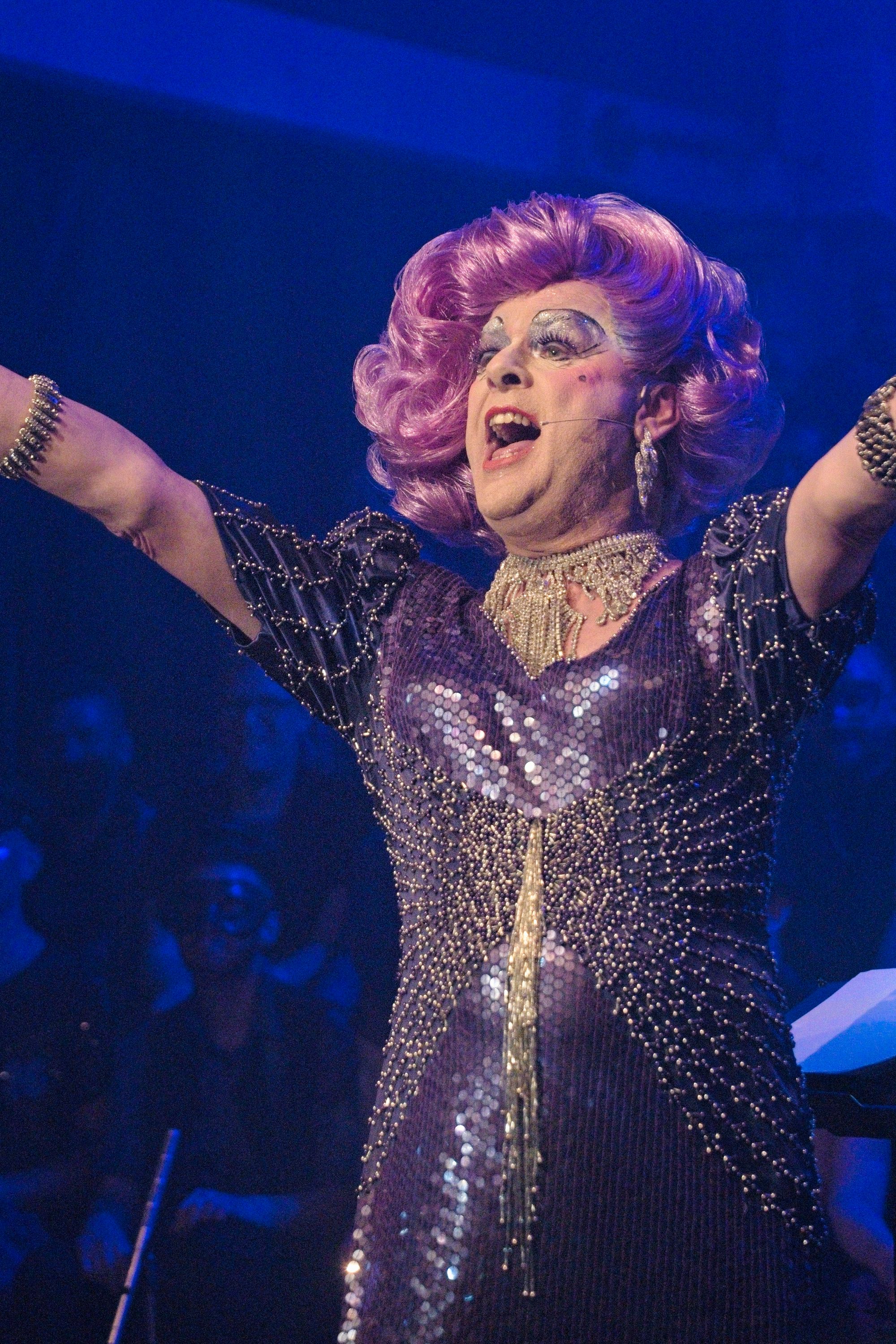
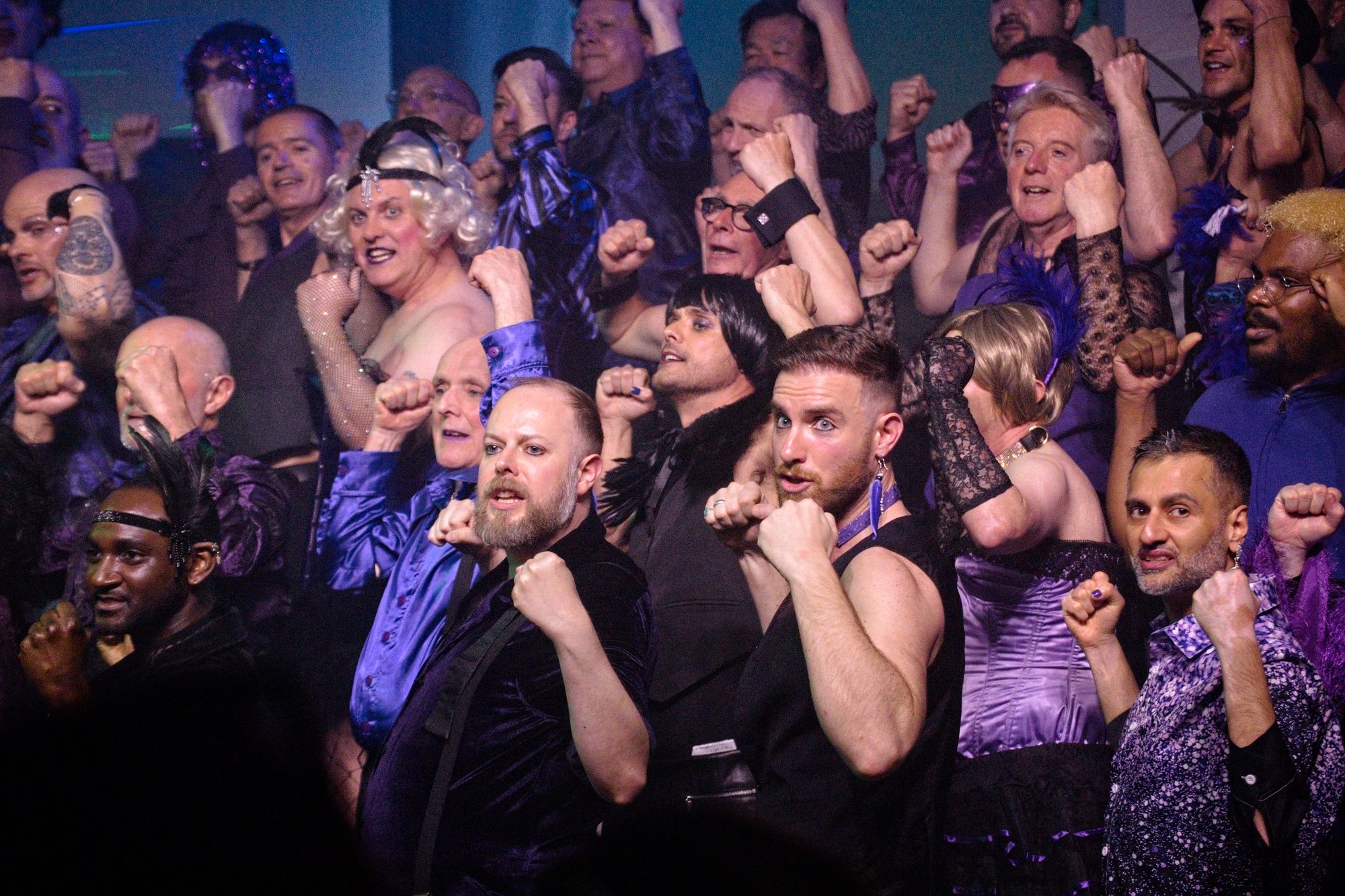
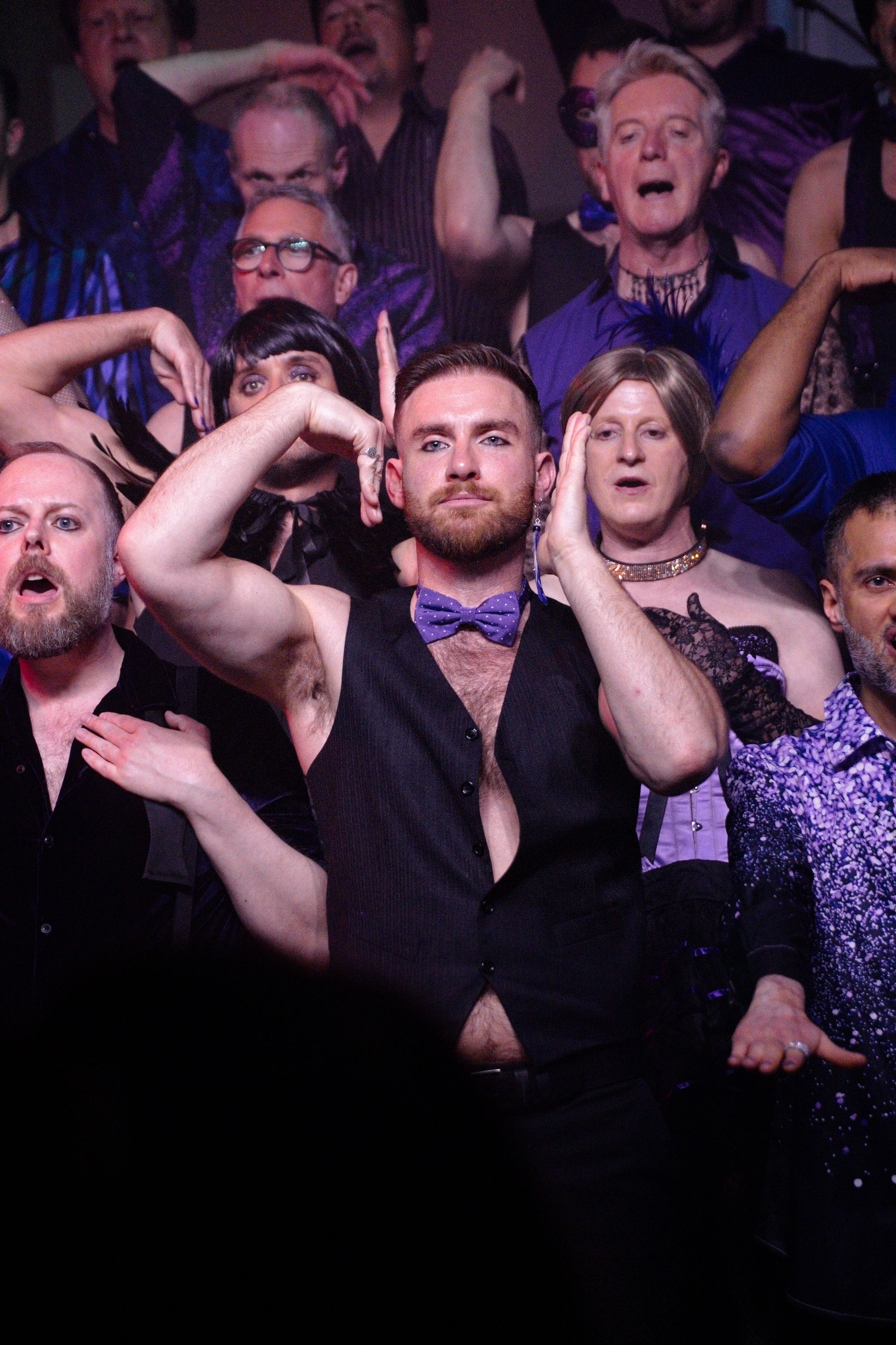
Roxy van der Post
Burt Williamson: 200 IQ Audience Only (No Munters) (Work In Progress)
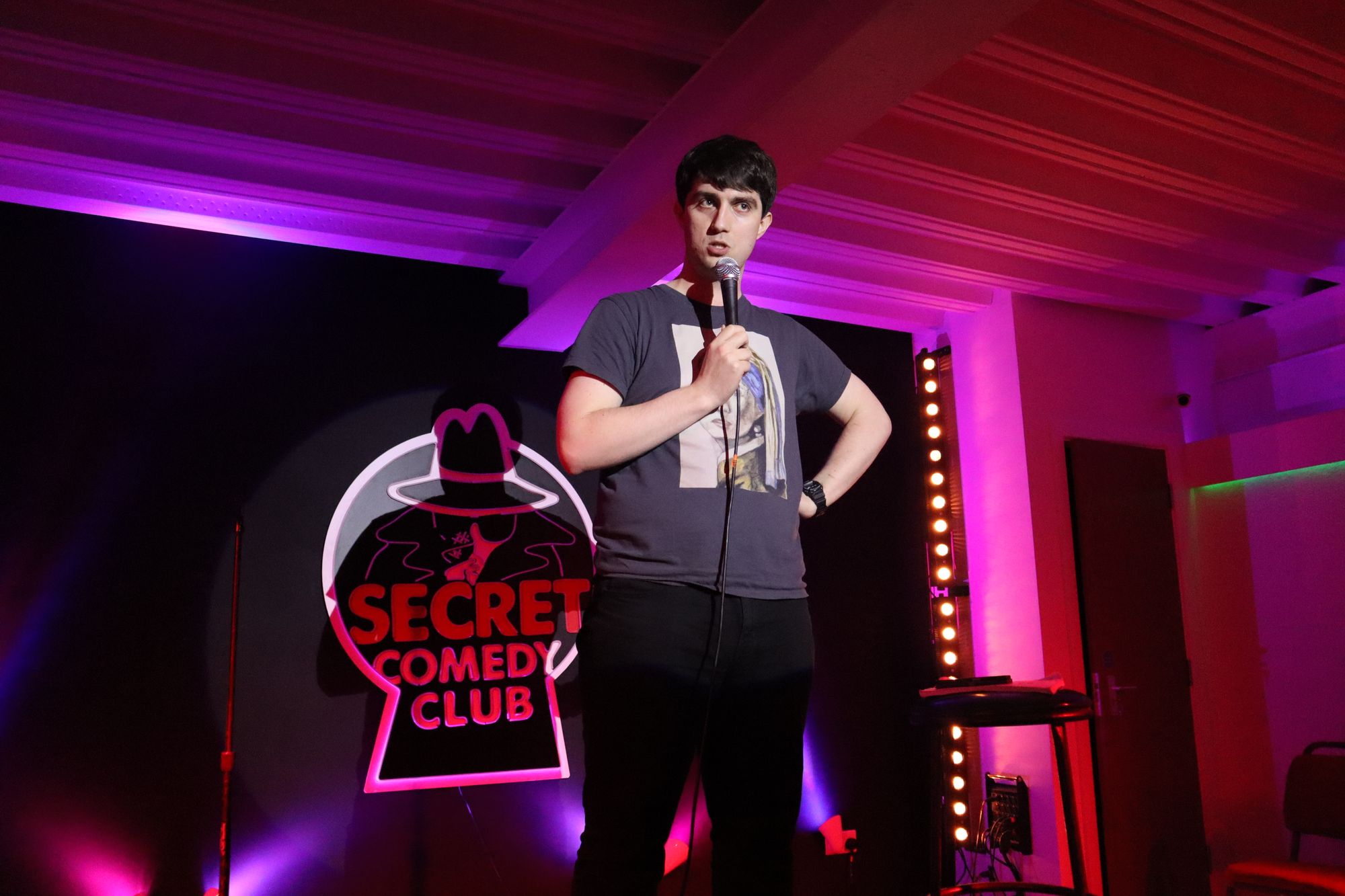
An initial scan of the room indicated that Williamson's show title had failed to succeed in attracting his intended audience, but no matter—the Bristol comic poshly drawled his way through a succession of well-constructed jokes, flights of fancy and shaggy-chicken stories. For a work-in-progress, it was well-developed, though possibly the first show I've seen that ended "any questions?".
Adam Englebright
Selena Mersey: Madonna/Whore

It might have felt like 'performing open heart surgery' on herself, as Selena Mersey so eloquently put it, but Madonna/Whore was every bit as entertaining, confessional and moving as I was hoping.
Having seen her perform at the Brighton Fringe launch at Ironworks Studios back in March, I knew to expect fifties glamour, an excellent theatre voice, and the baffling theory of one Sigmund Freud and his Madonna-whore complex. What I wasn't expecting was the seamless way Mersey wove in personal and family history, the rare ability she has to take us from cheek-aching laughter to silent tears, and the incredibly interesting question she posed: is it mothering him, or is it loving him? Sometimes, as she said, it's neater to keep such feelings contained, once you open up 'it all falls out'.
Discussing weaponised incompetence, emotional labour and the devastation of being a feminist, bisexual woman dating a man with a healthy amount of what I can only describe as comedy burlesque mixed in, Mersey summed it up best when she said: "It's messy maybe, but it makes sense to me and I feel better." Reader, it made sense to me, and seeing this show made me feel better.
Carly-May Kavanagh
A Machine for Belonging
For the past several years, Dave Waddell has been living with a god. Blissfully unaware, Waddell and the rest of his family have lived with this spirit at their home in Brighton, only realising the fact following an emotional journey through West Africa earlier this year. It sounds like the stuff of fiction, but this real-life experience was the basis of Waddell’s gripping talk, hosted by the Rapture arts group at the Regency Town House, located on Brunswick Square.
Waddell had been on a recce through Ghana, Togo, and Benin for the travel company, Journeys by Design. This part of the world still maintains vibrant animist traditions centred around voodooism, and exploring these cultural practices was a key aspect of the trip. Quite unintentionally, however, Waddell began to learn how societies in the region related to people with Downs’ Syndrome. Always revered as sacred, the various belief systems nonetheless ranged from the surprising to the alarming.
As a parent of a child with Downs’ Syndrome, Waddell naturally found himself drawn into a personal journey of discovery, including encounters with priestesses and kings, shrines and ceremonies. The adventure culminating with a highly charged emotional moment for Waddell, where he hears via a priest from the spirit of his son - the deity (who was, to clarify, alive and well with the rest of his family in Brighton during this surreal experience).
Waddell’s story-telling is captivating, but it is the fact that this adventure - filled as it is with unexpected twists and turns, lesser-known cultures, and voodoo - is completely and utterly true, which makes it so astonishing.
Following Waddell’s narrative, we heard first from Adam Smith, his co-author of The Experience Book, and secondly from the anthropologist, Dr Louise Fenton of the University of Wolverhampton, an expert in voodoo cultures. Both conversations provided further fascinating perspectives on Waddell’s adventures. Lastly came the Q&A which Waddell hoped would be as integral to the event as its other segments, and rightfully so - there was never any doubt we’d be left with questions for this tale which needs to be heard to be believed.
Ross Othen-Reeves
James Danielewski: Rainbow Trout (Work in Progress)
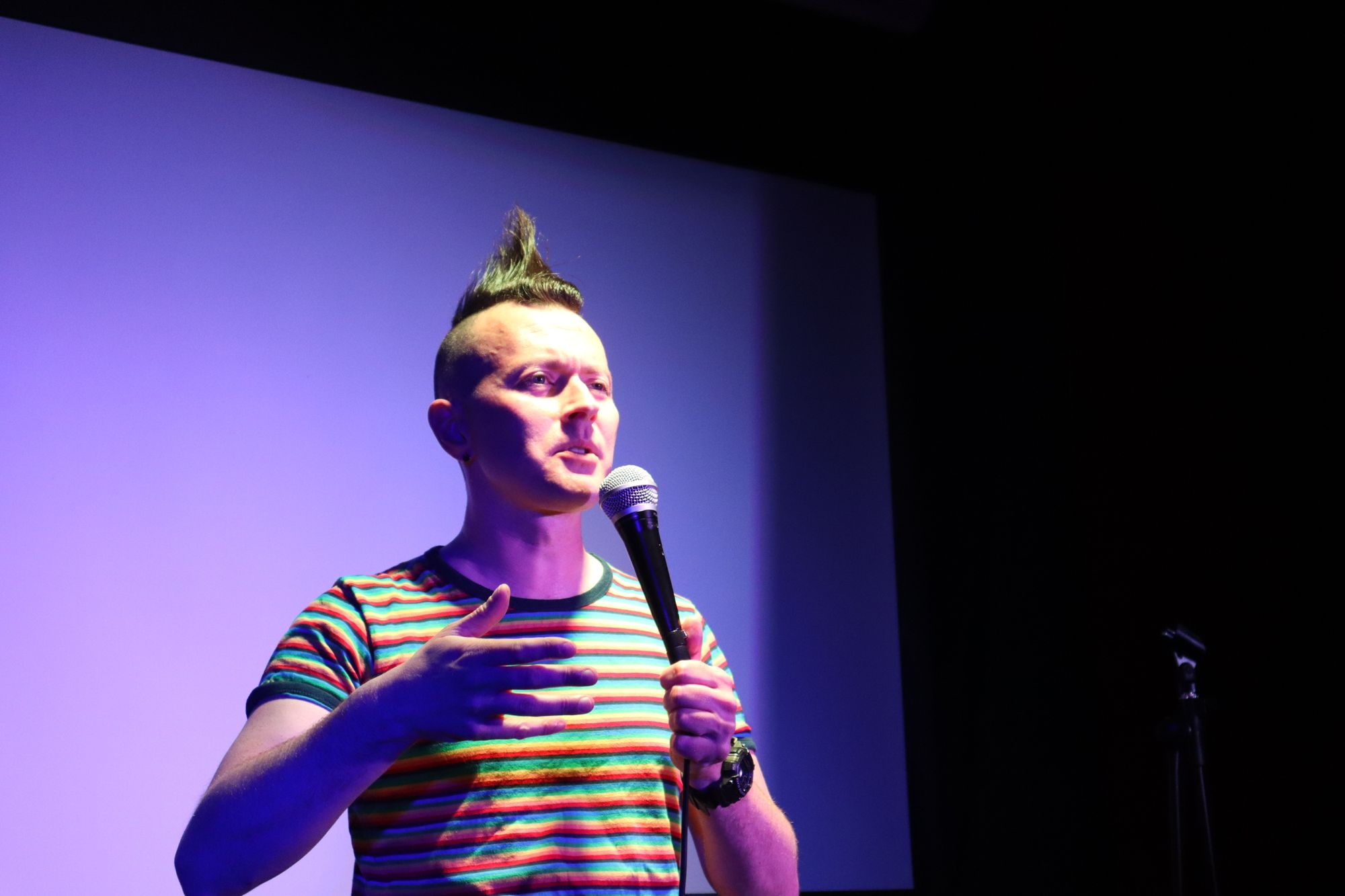
With his energetic delivery, excellent timing and elegantly layered joke construction, James Danielewski delivered what might be the best, bawdiest work in progress show I've ever seen. He displayed an impeccable instinct for the right moment to push every joke up a level and kept the audience, our editor especially, in a consistent state of paralysed laughter. The show's structure was (as Danielewski described his younger self) lean, smooth and compact—a twink of a show, you might say. (Tone it down a bit - Ed)
What I appreciated the most was how unaffected it was. There were no contrived attempts at pathos or heartstring-tugging, no third-act gearshift in tone to try and move it into the "prestige comedy" register. I have no doubt he could have pulled off such material had he chosen to—the show's subject matter, drawing heavily on his experience of growing up gay in Grimsby, could have accomodated that—but I was glad he opted instead just to do material about getting pulled off. (OK, you're fired - Ed)
Adam Englebright
The Cunning Folk of Sussex, Culpeper’s Medicine Garden
Cunning folk, traditionally, were those who practised folk magic and medicine, and were wise in the folklore and uses of plants. It’s a fitting moniker for our enthusiastic guides—herbalist Sara Jane Glendinning and folk musician Jo Burke—on this two-hour ramble into Sussex botany.
Despite the name, the walk only begins and ends with a garden: ‘At the Coach House’, a charming green oasis, workshop and community event space tucked away in Kemptown, which is also participating in Artists Open Houses this May. We head out into the street, and then the local ‘hawthorn grove’ – as Glendinning terms it – to learn the secrets of Brighton’s wild plant life. Along the way, Glendinning reveals the properties and uses of many common species, beautifully complemented by Burke’s renditions of traditional folk songs connected with them.
The walk takes its inspiration from 17 th century herbalist Nicholas Culpeper, who helped make plant-based medicine more available to the masses by translating and updating Latin lore into English. Glendinning’s well-thumbed copy of Culpeper’s Complete Herbal makes an appearance, and she’s happy to tackle more technical questions on preparing and using herbal remedies, but there’s plenty here to entertain the less botanically savvy, too. If you’d like to know which plant Henry VIII was reputed to keep in his codpiece, or the precise species of bush you should crawl around three times in order to cure boils, you might well find out.
A leisurely ascent up the steep slopes of Whitehawk Hill, dodging dog poo and occasionally ploughing through long grass, is rewarded with sightings of May blossom, wild strawberries, burdock, sweet peas, goldenrod and many more, along with stunning views back over Brighton. As the sun sinks low over a hazy hillside meadow of wildflowers, and Burke sings hauntingly of May Queens and lovers meeting under the broom, it’s a moment of true magic.
Claire Sargent


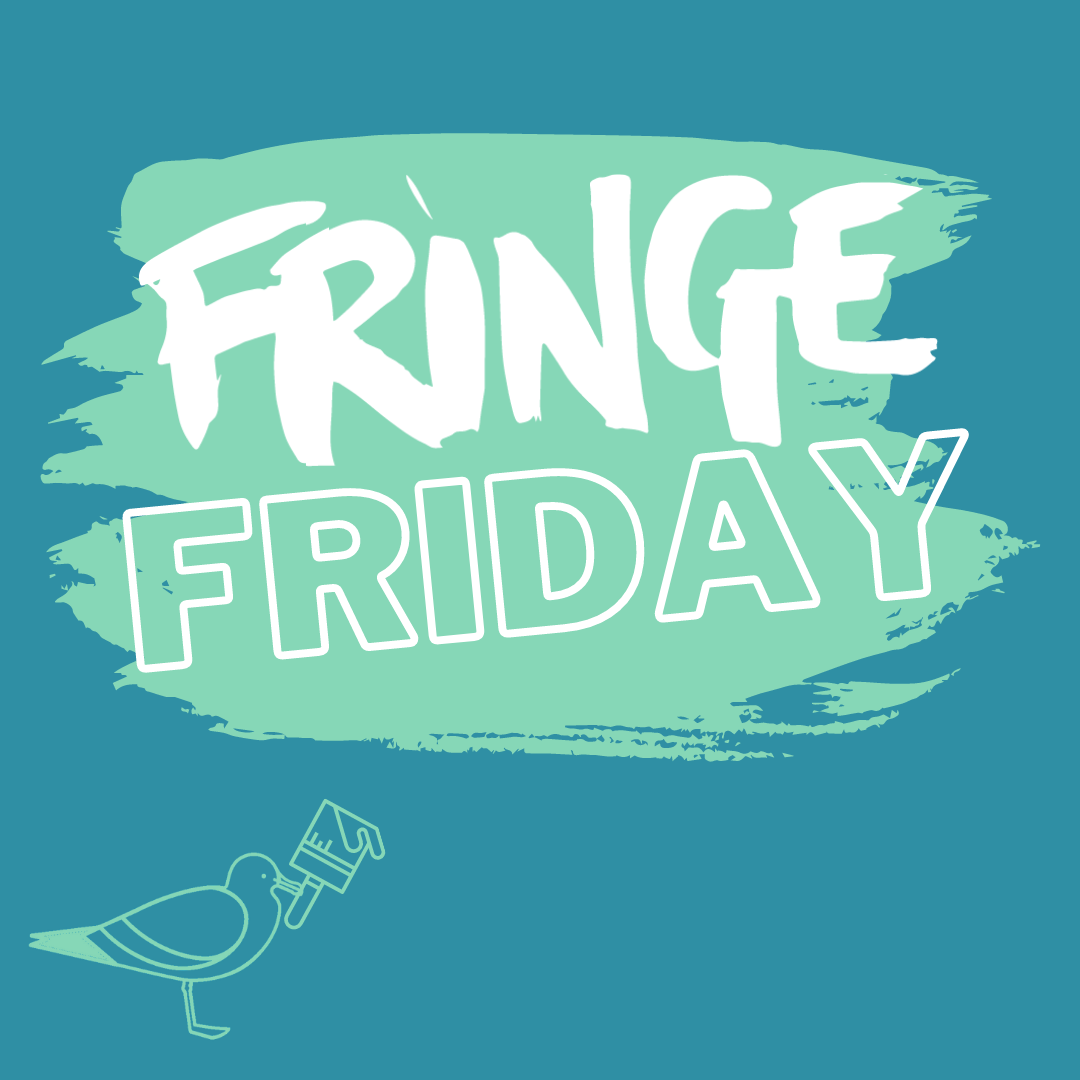
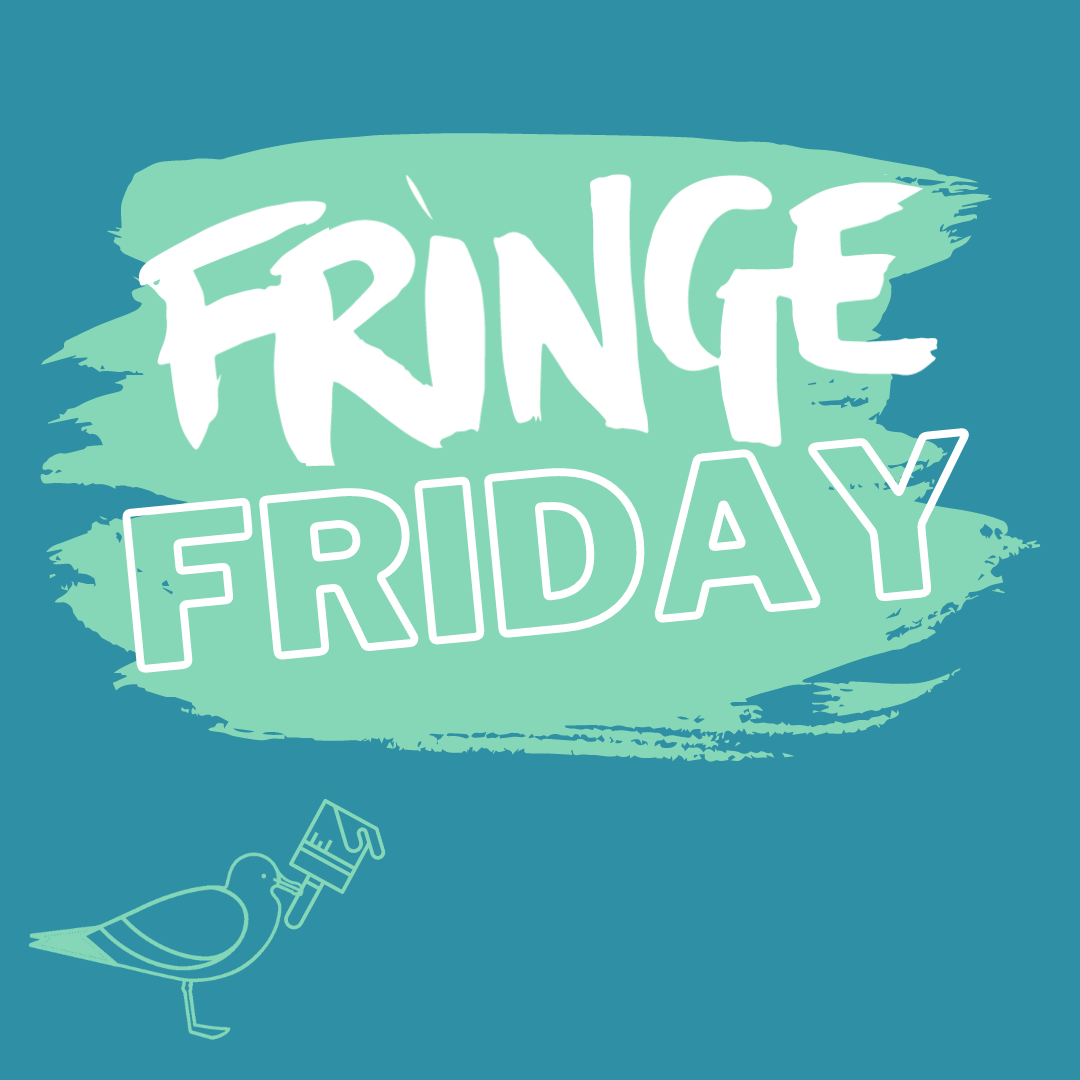
Comments ()